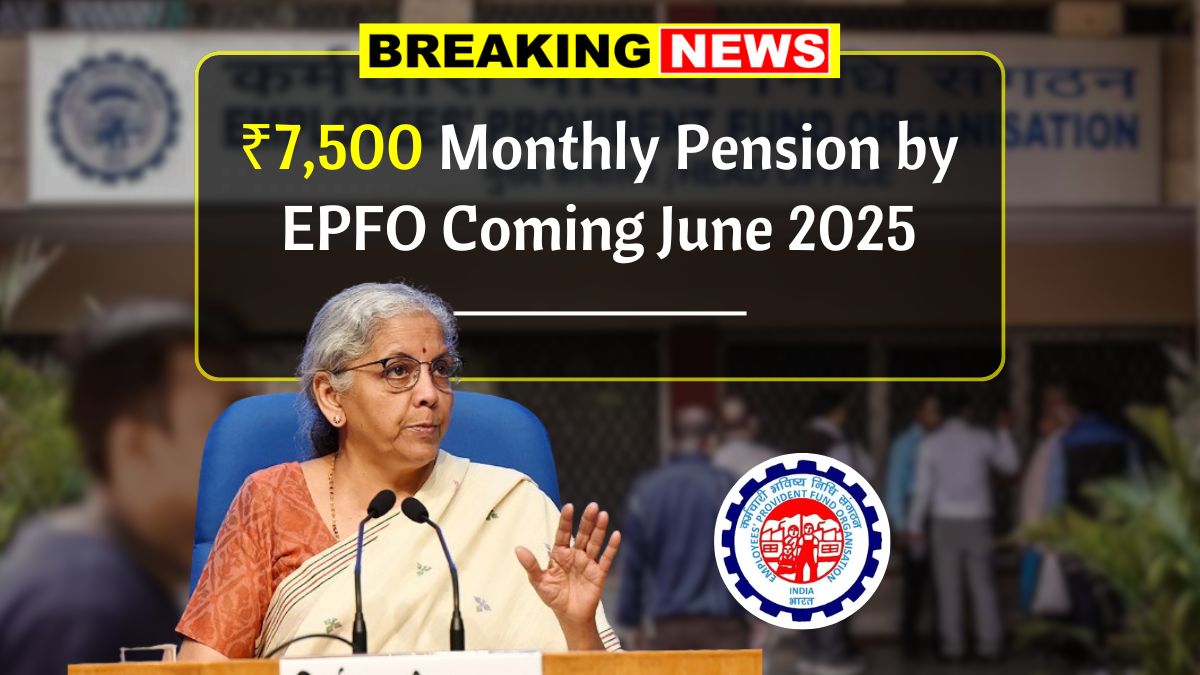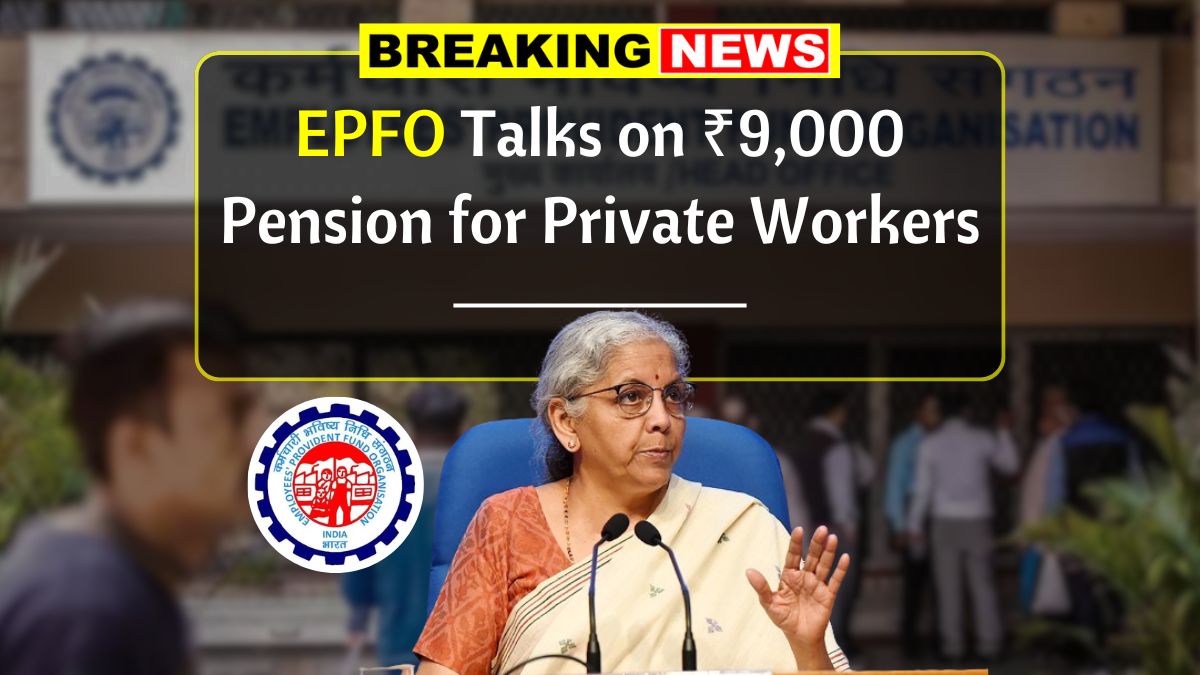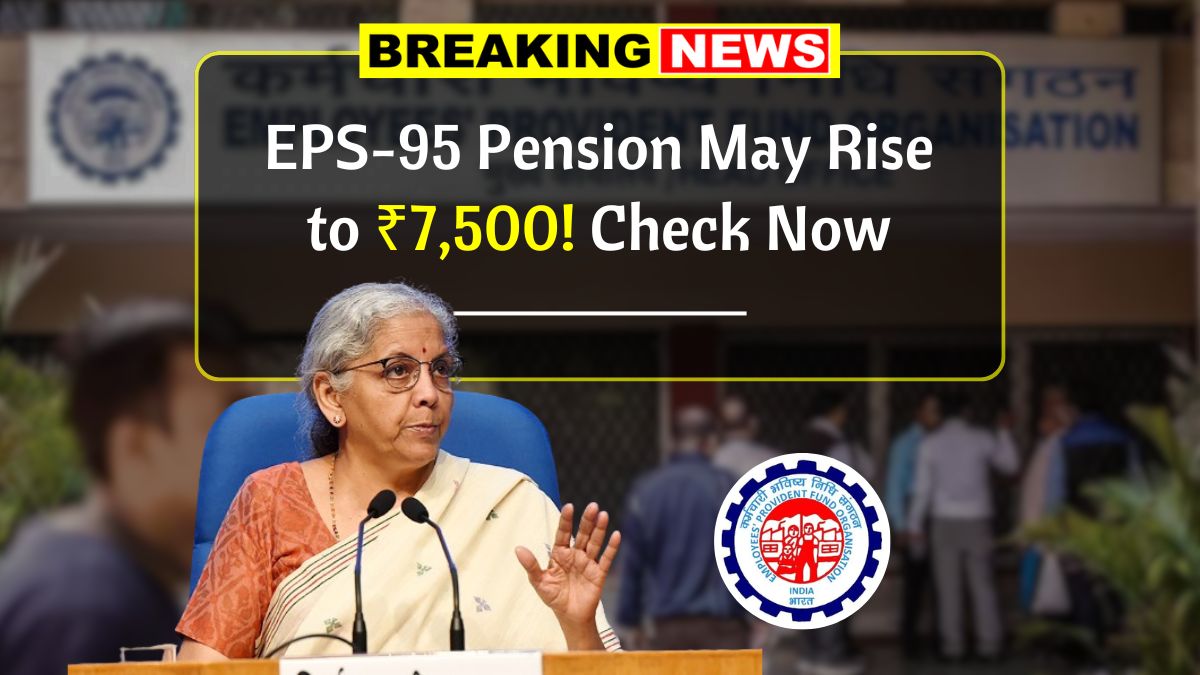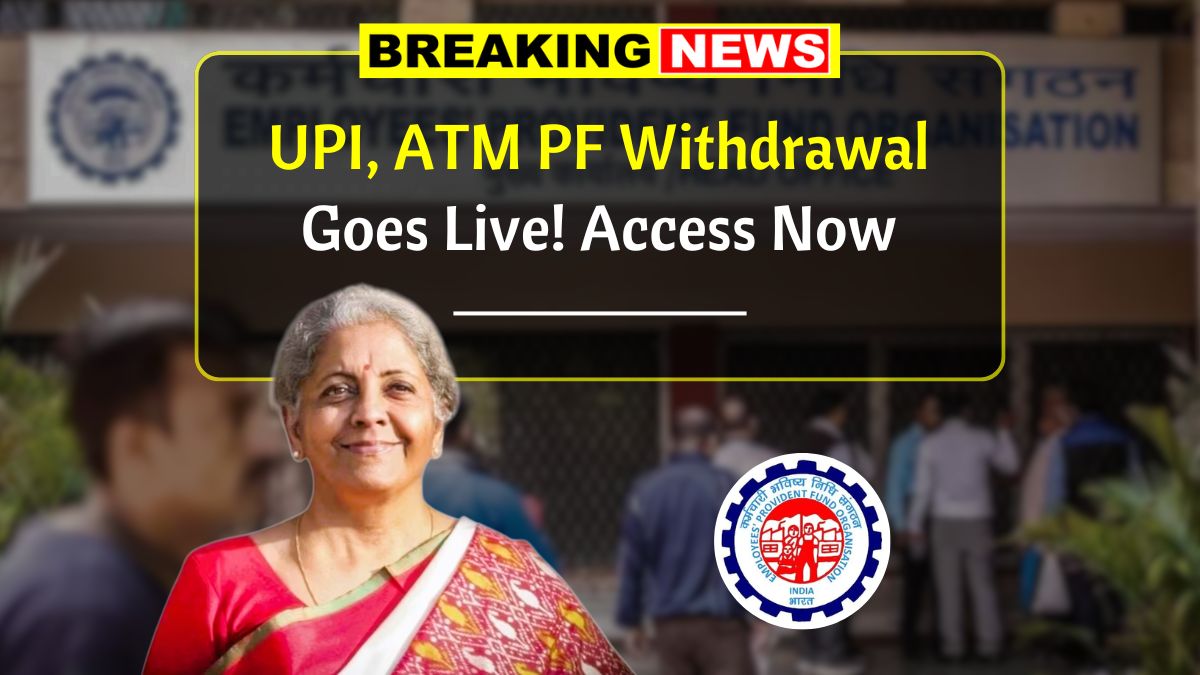EPFO Monthly Pension – Good news is on the horizon for lakhs of pensioners under the Employees’ Pension Scheme (EPS-95). The Employees’ Provident Fund Organisation (EPFO) is reportedly considering rolling out a minimum monthly pension of ₹7,500 starting June 2025. If this proposal gets the green light from the government, it could be a game-changer for many retired employees who have been struggling with low pension amounts for years.
But what exactly is this new plan about? Who will be eligible for this enhanced pension? And what changes will it bring for current and future pensioners? Let’s break down everything you need to know in a simple, easy-to-understand way.
Why Is EPFO Planning to Increase the Minimum Pension to ₹7,500?
Currently, many pensioners under the EPS-95 scheme receive very low monthly pensions — often less than ₹1,500. For most retired workers, this amount barely covers their basic expenses, let alone medical bills or other needs. Over time, this issue has become a big concern with pensioners and unions demanding a fair and sustainable pension amount.
To address this, EPFO is now looking to raise the minimum monthly pension to ₹7,500. This would mean that no pensioner under the EPS-95 scheme will get less than this amount once the proposal is approved and implemented.
The Labour Ministry and a special committee are reviewing the financial impact and beneficiary data, and if everything goes smoothly, this new pension plan could start from June 2025. This move aims to ensure a dignified post-retirement life for millions of low-income workers who have contributed to the provident fund during their working years.
Who Will Be Eligible for the ₹7,500 Monthly Pension?
Of course, not everyone will automatically get ₹7,500 a month. There are specific eligibility criteria for this pension under the EPS-95 rules. Here’s what you need to know:
- Minimum Contribution: You must have contributed to the EPS-95 scheme for at least 10 years.
- Age Requirement: You should be at least 58 years old to receive the full pension. For early pension, people aged 50 or above may get it but with some reduction.
- Retirement or Exit: You must have retired or exited from employment with a valid EPS account.
- No Higher Pension through Court Orders: If you’re already receiving a pension higher than ₹7,500 via court orders or special provisions, this won’t affect you.
- Active UAN and Aadhaar Linking: Your Universal Account Number (UAN) must be active, linked, and verified with your Aadhaar for smooth processing.
So if you tick these boxes, you are likely to qualify for the enhanced minimum pension once the plan is implemented.
What Benefits Can Pensioners Expect?
If this ₹7,500 minimum pension proposal is approved, pensioners can look forward to:
- A flat minimum pension of ₹7,500 every month.
- Dearness Allowance (DA) on top of the pension, which will adjust based on inflation.
- Easy direct bank transfers of pension amounts linked with UAN.
- Improved access to pension applications and online grievance redressal via the EPFO portal.
- Enhanced benefits for widows and dependent family members under the family pension scheme.
This means more financial security and less hassle in managing your pension claims.
Current Pension vs Proposed Pension: A Quick Comparison
| Parameter | Current EPS-95 Pension | Proposed Minimum Pension (June 2025) |
|---|---|---|
| Minimum Monthly Pension | ₹1,000 – ₹1,500 | ₹7,500 (fixed) |
| Eligibility Age | 58 years | 58 years |
| Minimum Service | 10 years | 10 years |
| Dearness Allowance | Not Applicable | Likely Applicable |
| Beneficiary Coverage | About 6.5 crore EPFO members | Targeted 25-30 lakh pensioners |
| Family/Widow Pension | Variable | Standardized & enhanced |
| Payment Mode | Bank Transfer | Bank Transfer (UAN-linked) |
| Implementation Date | Ongoing | Expected June 2025 |
Estimated Pension Payouts Under the New Scheme
Here’s an idea of how pensions may look based on years of service under the new plan:
- 10 years: Current ₹1,200 vs New ₹7,500
- 15 years: Current ₹1,400 vs New ₹7,500
- 20 years: Current ₹1,800 vs New ₹7,500 + DA
- 25+ years: Current ₹2,000-₹3,000 vs New ₹7,500 + DA
- Early exit (age 50+): Current ₹800-₹1,000 vs New ₹7,500 (reduced proportionally)
- Family/Widow pension: Current ₹1,000-₹1,200 vs New ₹7,500 or linked rate
This clearly shows a huge improvement, especially for pensioners who have been receiving minimal amounts.
What Happens If This Proposal Gets Approved?
- Pensioners who qualify will be automatically migrated to the new pension structure.
- EPFO will issue an official notification listing eligible beneficiaries and their UANs.
- You might need to update your KYC details, link your Aadhaar and bank accounts properly with the EPFO portal.
- The grievance redressal mechanism will likely be strengthened with dedicated helplines to address pension-related queries.
So it’s a good idea to keep your EPFO records updated and ensure your details are accurate.
Documents You Should Keep Ready
If you plan to claim or update your pension, make sure you have:
- Aadhaar card linked with your UAN
- Bank passbook or cancelled cheque linked to your EPFO account
- PAN card
- Pension claim form 10D (for monthly pension)
- Employment certificate or PF statement as proof of service
- Recent photograph and signature
Having these documents handy will make the process smoother when the new pension rollout happens.
If implemented, EPFO’s plan to raise the minimum pension to ₹7,500 a month will be a major boost for millions of retired workers who have been living on very low pensions. It will provide better financial security, dignity, and peace of mind in their retirement years. While we wait for the government’s final nod, it’s a good idea to check your eligibility, keep your documents ready, and update your EPFO details.
This move reflects a positive change in India’s social security system and shows the government’s commitment to supporting the country’s workforce even after retirement. Fingers crossed that the proposal becomes reality soon and pensioners get the respect and support they deserve.














